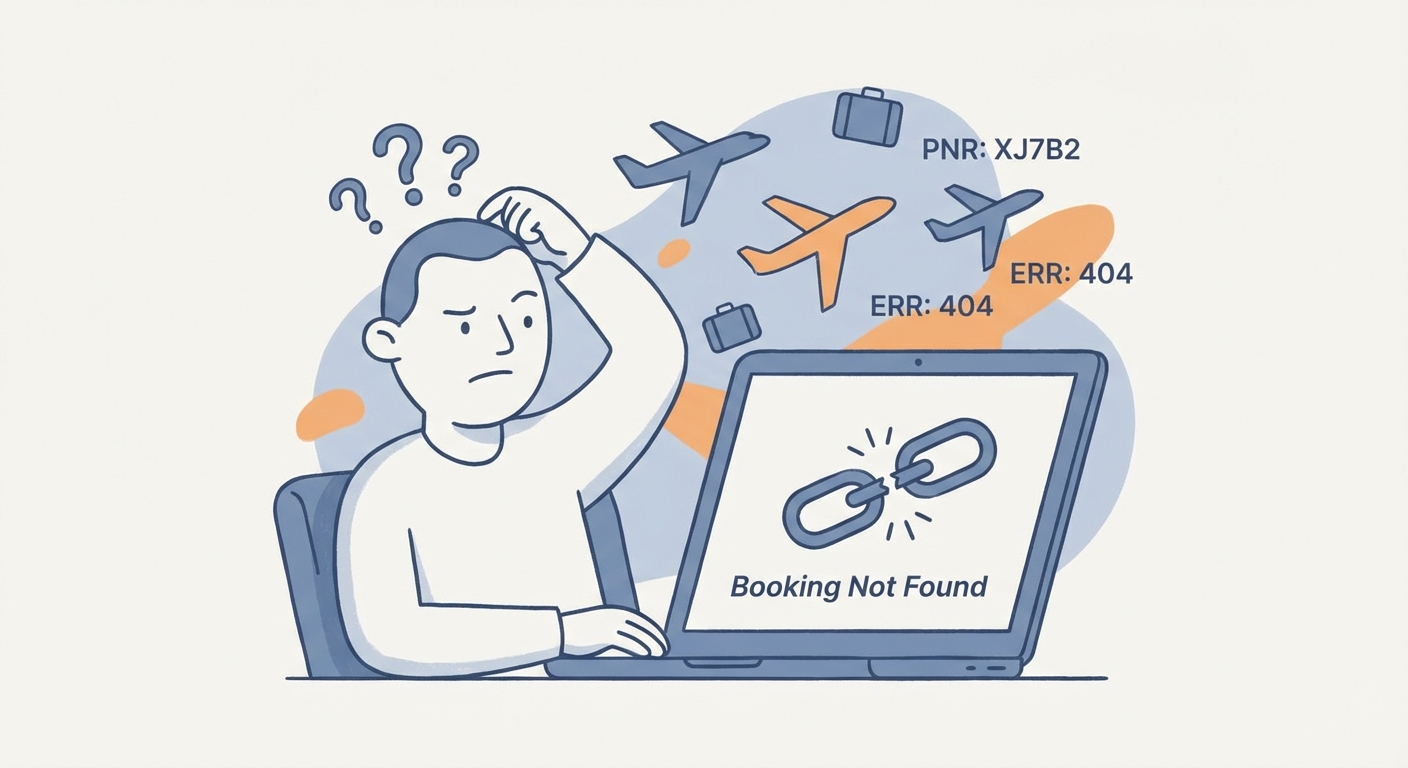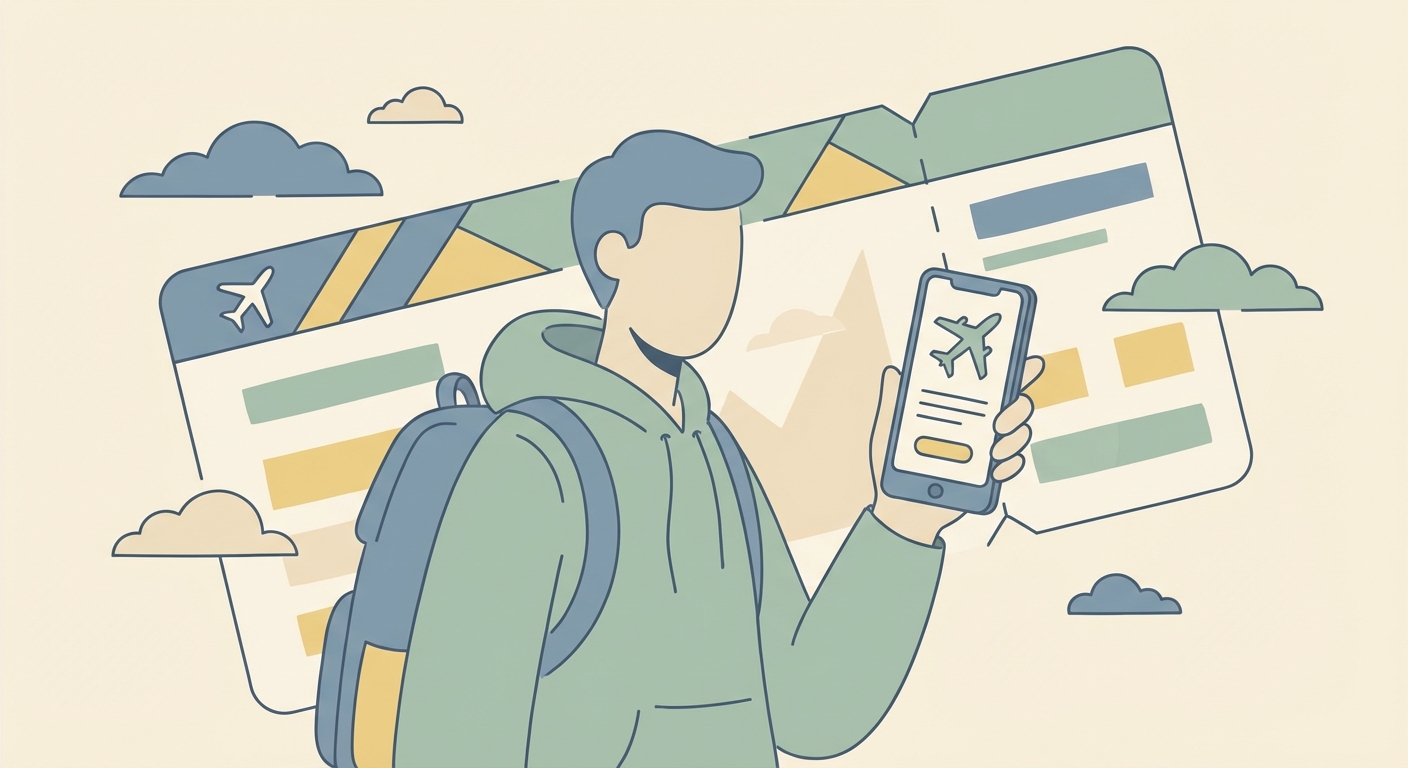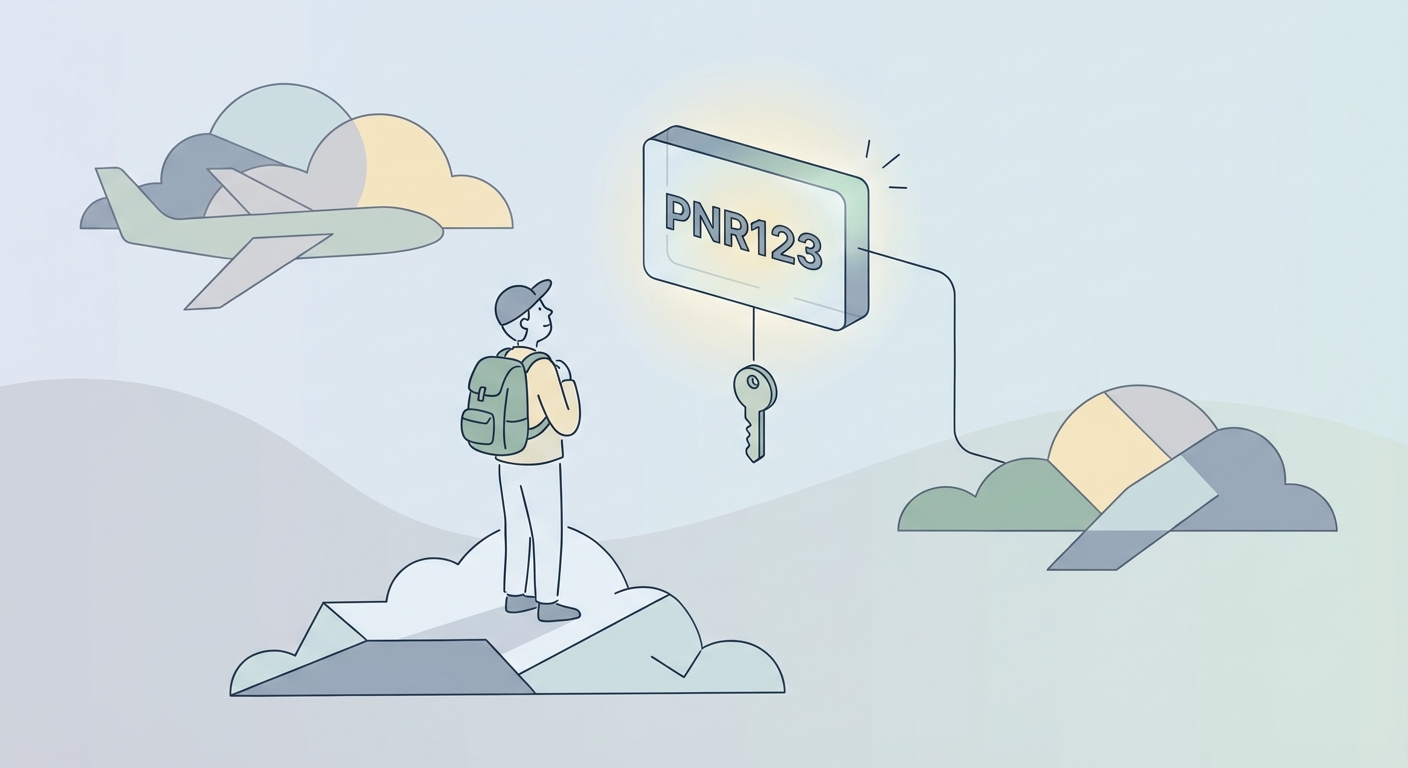What to Expect If You Miss a Flight Without Cancellation
TL;DR
- This article covers the potential consequences of missing a flight when you haven't canceled your reservation. We'll explore airline policies, potential fees, the ripple effect on connecting flights and accommodations, and strategies, for mitigating the negative impacts and understanding your rights as a traveler.
Understanding Airline Policies on Missed Flights
Ever missed a flight? It's a gut-wrenching feeling, right? Like, all that planning down the drain. But what really happens when you're a no-show? It's not always as simple as just rebooking and moving on, unfortunately.
Airlines, they've got it all figured out, don't they? Buried deep in the fine print of your ticket is something called a "no-show" clause. Basically, it's their way of saying, "If you don't show up for your flight, we have the right to mess with your travel plans." Harsh, i know.
- What's a "no-show," anyway? Well, it's exactly what it sounds like. If you're not there when the gate closes, you're a no-show. Airlines don't care if you're stuck in traffic, lost your passport, or just overslept. A missed flight is a missed flight.
- Not all airlines are created equal. Some airlines are more lenient than others, of course. Budget airlines? They're probably gonna stick to the rules like glue. Major carriers might be a little more understanding, especially if you have some sort of status with them. but don't count on it.
- The contract you didn't read. That ticket you bought? It's a contract, believe it or not. And by buying it, you're agreeing to their terms, even if you haven't read them, which, let's be honest, who does?
Missing that first flight can cause a domino effect. Think connecting flights and return tickets just vanishing into thin air.
- Connecting flights gone poof! Miss your initial flight, and airlines often automatically cancel any connecting flights you had scheduled. It's all part of their grand plan to maximize profits, i suspect. So, you're not just missing one flight; you're potentially stranded.
- Return ticket blues. This is where it really stings. Miss your outbound flight, and they might just cancel your return ticket too. Yep, that's right. You could be buying a whole new ticket home.
- Fighting back (sort of). Is there a way to avoid this? Sometimes. Call the airline immediately. Beg, plead, explain. If you're lucky, they might reinstate your flights, but be prepared to pay a fee.
Your fare class matters. Like, a lot. That rock-bottom "basic economy" ticket? Yeah, that's gonna come with some serious restrictions. Generally, fare classes range from basic economy, which is the most restrictive and cheapest, to economy, premium economy, business, and first class, with each tier offering more flexibility and comfort at a higher price.
- Basic economy = limited options. These fares are cheap for a reason. Changing your flight? Forget about it. Getting a refund? Not a chance. You're basically at the airline's mercy.
- Change fees and penalties? Oh, yes. Miss your flight, and you're probably looking at a hefty change fee, plus the difference in fare between your old ticket and the new one. It can add up fast.
- Read the fine print, seriously. I know, it's boring. But knowing what you're getting into before you buy the ticket can save you a ton of headaches and money later.
So, what's the takeaway? Missing a flight is bad news, but understanding the airline's policies can help you minimize the damage. Now that we've covered the rules, let's talk about the financial fallout.
Financial Implications of Missing Your Flight
Okay, so you've missed your flight. The initial panic is setting in - but what's next? Well, unfortunately, it's probably going to hit your wallet pretty hard.
First things first: that ticket you bought? It might just be worthless now. Seriously. Airlines often operate on a "use it or lose it" basis. If you don't show up, they're under no obligation to give you a refund. Unless you bought some fancy, flexible fare, prepare for the worst.
- Non-refundable fares: These are the most common, especially if you snagged a 'deal'. Missing your flight means you're likely kissing that money goodbye.
- Flexible fares: These do exist, but they cost more upfront. They usually allow changes or cancellations, sometimes with a fee. If you think there's even a small chance you might miss your flight, it could be worth the extra cost.
- Check the fine print, again: Before you completely give up, dig out your booking confirmation and read the terms and conditions. Look for words like "refundable," "changeable," or "cancellation policy." You never know, you might get lucky.
So, your original ticket is toast. Now you need to get where you're going. Rebooking is usually the only option, but it's rarely cheap. Be prepared for change fees and a potential fare difference, which could really sting.
- Change fees: Airlines love these. They can range from a measly $75 to a whopping $400, depending on the airline and the fare class.
- Fare differences: This is where it gets really fun. If the price of the new flight is higher than what you originally paid, you're on the hook for the difference. And guess what? Last-minute flights are always more expensive.
- Bargain hunting: Try comparing prices across different airlines and travel websites. Using flight comparison sites like Google Flights, Skyscanner, or Kayak can help you find the best deals.
Did you buy travel insurance? If so, now's the time to dust off that policy and see if it covers missed flights. But don't get your hopes up too high; these policies often have more holes than swiss cheese. Travel insurance policies vary greatly in coverage and cost, from basic trip cancellation to comprehensive plans. Common exclusions include things like missed flights due to overbooking, travel during a known pandemic, or if you were intoxicated.
- Covered reasons: Most policies only cover missed flights due to specific, unforeseen circumstances, like illness, injury, or a family emergency. Traffic jams, oversleeping, or simply changing your mind? Probably not covered.
- Exclusions galore: Read the fine print carefully. There are often a ton of exclusions. Some policies won't cover pre-existing conditions, while others won't cover missed flights if you were under the influence of alcohol or drugs.
- Filing a claim: If you think you have a valid claim, gather all your documentation (flight itinerary, medical records, police reports, etc.) and file a claim with your insurance company as soon as possible. be prepared for a lengthy process.
It's a financial minefield, for sure. Knowing what to expect is half the battle, though. Now that we've covered the financial side, let's get into the immediate actions you can take.
Steps to Take Immediately After Missing Your Flight
Okay, so you've just watched your plane taxi away without you. Not a great start to any adventure, huh? But don't freak out just yet. There are things you can do immediately to try and salvage the situation, even if it feels like a total disaster.
Seriously, the very first thing you need to do is get on the phone with the airline. Or, if you're still at the airport, find their customer service desk. Time is of the essence here. The sooner you contact them, the better your chances of getting rebooked without a huge penalty. You can also try using there online chat. i find it usually works better to call, though.
- Have your info ready: Dig out your booking reference number and ticket number before you call. Fumbling around for that stuff wastes precious time.
- Be polite (but firm): The person on the other end of the line didn't cause you to miss your flight, so don't yell at them. Instead, try to communicate your situation clearly and professionally. Focus on what you need, like rebooking on the next available flight, and be prepared to explain your circumstances concisely.
- Ask about your options: See if they can rebook you on the next available flight to your destination. Ask about any change fees or fare differences that might apply.
Don't just accept the first offer the airline gives you. Explore your rebooking options. Sometimes, a little negotiation can go a long way.
- Check alternative flights: Use online travel agencies or search engines to see if there are other flights to your destination on different airlines, maybe even from a different airport nearby, if that works for you.
- Negotiate (nicely): If the change fees are outrageous, try to negotiate. Explain that you're a loyal customer (if you are), or that you had a legitimate reason for missing your flight (if you did). The worse they can say is no.
- Consider nearby airports: Sometimes flying from a smaller, regional airport can be cheaper or offer more availability. It might be worth the extra drive, but be sure to factor in the time and cost of getting to that alternative airport.
This is super important. Keep a record of everything. save any emails, boarding passes, receipts, and even the names of the airline representatives you spoke with.
- Communication logs: Jot down the date, time, and a summary of each conversation you had with the airline. This can be crucial if you need to file a claim later.
- Receipts and expenses: Save receipts for any extra expenses you incur as a result of missing your flight, such as meals, accommodation, or transportation.
- Insurance purposes: If you have travel insurance, all this documentation will be essential when you file a claim. Even if you don't think you'll need it, it's better to be safe than sorry.
Okay, so you've contacted the airline, explored rebooking, and documented everything. The immediate crisis is being handled, and hopefully, you're on your way. Now, let's shift our focus to preventing this from happening again.
Minimizing the Risk of Missing Future Flights
Alright, so you've learned the hard way about missed flights. Now, how do you avoid a repeat performance? It's all about planning—and a little bit of travel zen.
First off, give yourself way more time than you think you need to get to the airport. Seriously, pad that schedule.
- Traffic? Account for it. Check traffic apps like Waze or Google Maps before you even leave, and again closer to your departure time for the most up-to-date conditions. And don't just look at current conditions; check the historical traffic patterns for that time of day. A seemingly clear highway at 2 pm can turn into a parking lot at 4 pm.
- Parking nightmares are real. Airport parking lots can be a black hole of time. Consider booking a spot in advance or using a ride-sharing service to avoid the circling game. i've spent a good 30 minutes, before, just looking for parking.
- Security lines are unpredictable. TSA wait times are notoriously variable. Arrive at least two hours before a domestic flight and three hours before an international one. These are general guidelines, so always check your specific airline and airport for their recommended arrival times, especially during peak travel periods.
Flight tracking apps are your friend, trust me.
- Real-time updates are gold. Apps like FlightAware or Flighty (i personally prefer Flighty, but that's just me) give you real-time info on delays, gate changes, and even baggage claim info. Set up notifications so you're always in the loop.
- Proactive alerts are clutch. Configure alerts for any changes to your flight itinerary. Some apps will even send you a notification if the airline starts experiencing system-wide delays, giving you a heads-up to prepare for potential issues.
- Don't rely solely on airline data. sometimes airline apps aren't the fastest to update. Third-party flight tracking apps often have access to more real-time and comprehensive data sources, making them more reliable for immediate updates.
Consider flexible fare options, even if they cost more. It's like an insurance policy for your travel sanity.
- Change without the pain. Flexible fares often allow you to change your flight without hefty fees, which can be a lifesaver if something unexpected comes up.
- Know the fine print, though. Read the terms and conditions carefully. Some "flexible" fares still have restrictions or require you to pay a fare difference if the new flight is more expensive.
- Peace of mind is priceless. If you're prone to travel anxiety or have a history of missing flights, the extra cost of a flexible fare may be worth it for the peace of mind alone.
So, yeah, missing a flight stinks, but with a little foresight and planning, you can seriously minimize the chances of it happening again. Safe travels!





